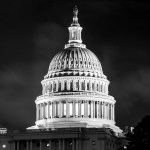News
German fibre broadband association argues that Deutsche Telekom’s smaller rivals should not be forced to share access to their infrastructure
Back in 2023, following the European Declaration on Digital Rights and Principles launched in 2022, the European Union (EU) sought comment on a draft of the Gigabit Infrastructure Act (GIA), legislation aimed at extending gigabit connectivity to all European citizens by 2030.
Draft changes to the GIA suggested by the European Council that same summer were broadly met with approval by the German fibre broadband community, including changes allowing member states to determine that virtual network access can be a viable alternative to physical network access.
However, last week a joint statement by Germany’s Federal Association of Broadband Communication (BREKO) and the German Association of Energy and Water Industries (BDEW) criticised some of these changes, noting that a lack of regulation would lead to unnecessary network overbuild in some areas.
The Council’s position would enshrine a right to share physical the physical duct infrastructure of other network operators under certain conditions, regulation the Council believes will rapidly accelerate gigabit network access.
The German industry associations, however, argue that these measures are only suitable for markets where fibre networks are already widely available. In markets like Germany, where the national fibre rollout still has a long way to go, BREKO and BDEW argue that these new access rules could benefit the incumbent operator, Telekom Deutschland (Deutsche Telekom, DT), allowing them to build a market-dominating ‘superstructure’ and thereby stifle investment by smaller operators.
In a joint paper published last week, BREKO and BDEW outlined their position that operators must be allowed to deny infrastructure sharing requests under certain circumstances, such as when alternatives, like virtual network access, are available.
Now, this week, DT has struck back at the associations, accusing them of trying to maintain an ineffective status quo.
DT argues that the GIA would allow all the nation’s operators to make better use of empty ducts and accelerate the national fibre rollout. They also noted that, as the ex-incumbent operator, they are already required to grant competitors access to empty ducts but are not guaranteed to receive the same access from their competitors, a fact they claim is discriminatory.
The operator says this leads to a “massive imbalance” in the market and serves to “cement competitors’ desire for local fibre-optic monopolies to the detriment of customers”.
Germany has a significant issue with overbuild when it comes to fibre, with a report by the German Association of Local Public Utilities (VKU) showing 62% of respondents were threatened by overbuilding by their rivals. DT, naturally, was cited as the main perpetrator, defending its position by arguing that it would only overbuild in areas where it was economical to do so.
Trilogue negotiations regarding the GIA’s implementation are currently underway between the European Council, European Parliament, and the European Commission.
Want to keep up with all the latest action from the German telecoms industry? Join the discussion at this year’s live Connected Germany conference
Also in the news:
South Korean president backs semiconductor mega cluster investment
Malaysia to launch second 5G network alongside DNB
BT signs connectivity deal with Iraqi gas firm















